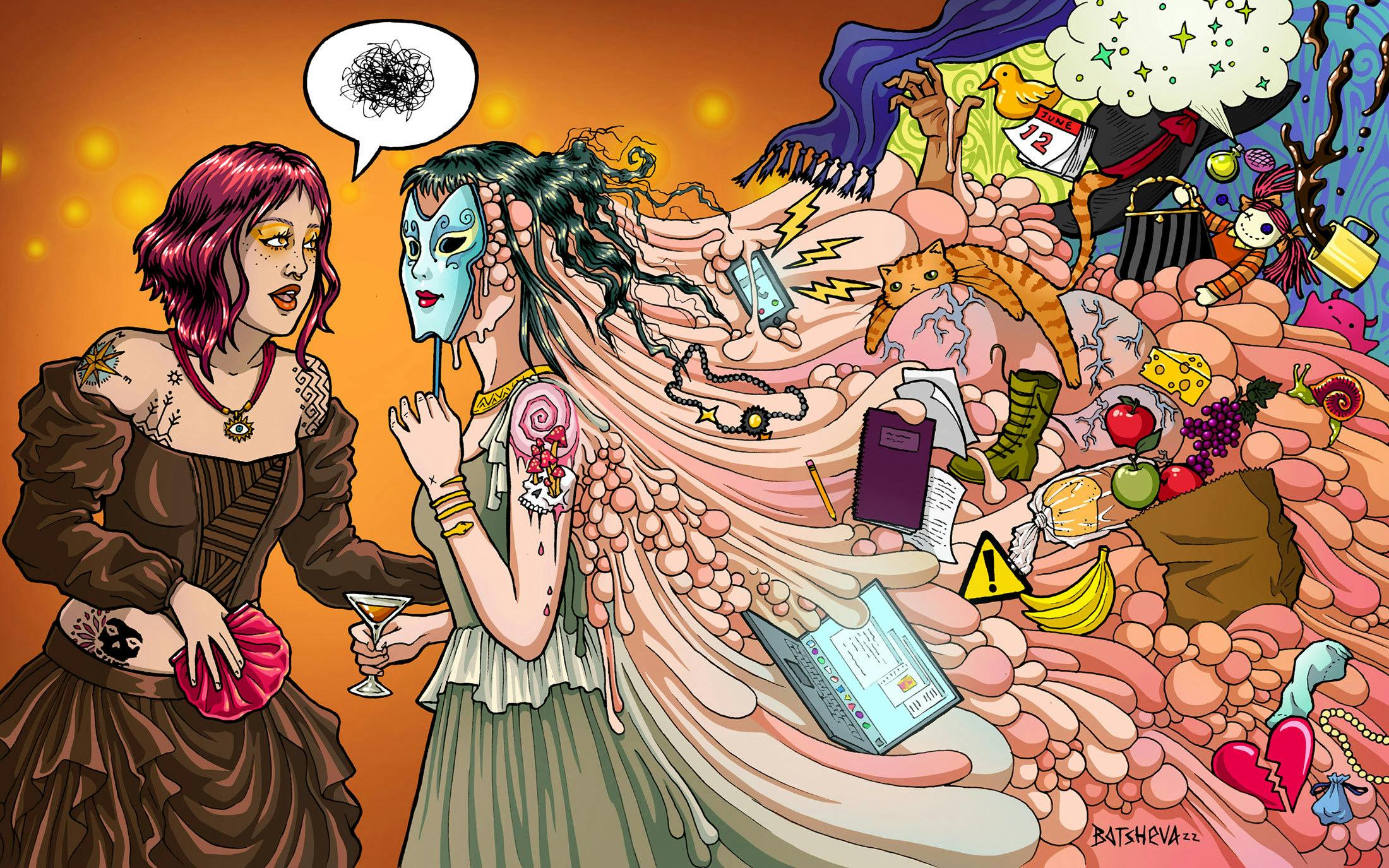After a year of intense stress, Zara’s heart rate was above average and she developed digestive problems culminating in chronic stomach pains. “After quite a few tests including an endoscopy, my doctor diagnosed me as most likely having gastritis and IBS, brought on by work-related stress.”
While Zara says she’s found a “healthier balance of productivity and wellbeing” in her new role, she hasn’t changed sectors and still experiences some work stress. “Living in a digital and capitalist culture with algorithms trolling your every online shopping purchase, it's really difficult to deconstruct your ability to consume and earning potential in a way that's probably healthy.”
Things get trickier when your sense of self becomes intertwined in your work and career. “Linking self-worth to productivity can be a very dangerous cycle, as it promotes feelings of guilt when the very human need to rest comes to the forefront,” says Floss.
It’s a feeling that artist and creative Daniel* can relate to. He initially studied medicine and soon realised the long hours required were taking too much of a toll on his mental health and he was burning out. “We live in a society where working hard and not resting is lauded, where going in when you’re ill and working through stress and sadness are congratulated,” he says, adding that he believes this way of life is linked to “capitalist ideals”.
”Your value as a person is not defined by your work output,” Floss notes. “Your employment is just one small part of your identity and if you are struggling with productivity, it has no bearing on whether you are 'worthy' of anything.”
Sometimes I think I’d be better off living up a tree somewhere, but until then I have to remind myself that productivity doesn’t define any of us, and in fact it’s an ableist way of thinking, and if we take it one step further, ableism is rooted in capitalism. Were humans really plopped on this planet to answer emails, intake data for hours on end, and worry about the morning commute? What if your disability or mental health disorder prevents you from working, does that mean you’re not worthy? Surely we are more than how useful we are.
*names have been changed
